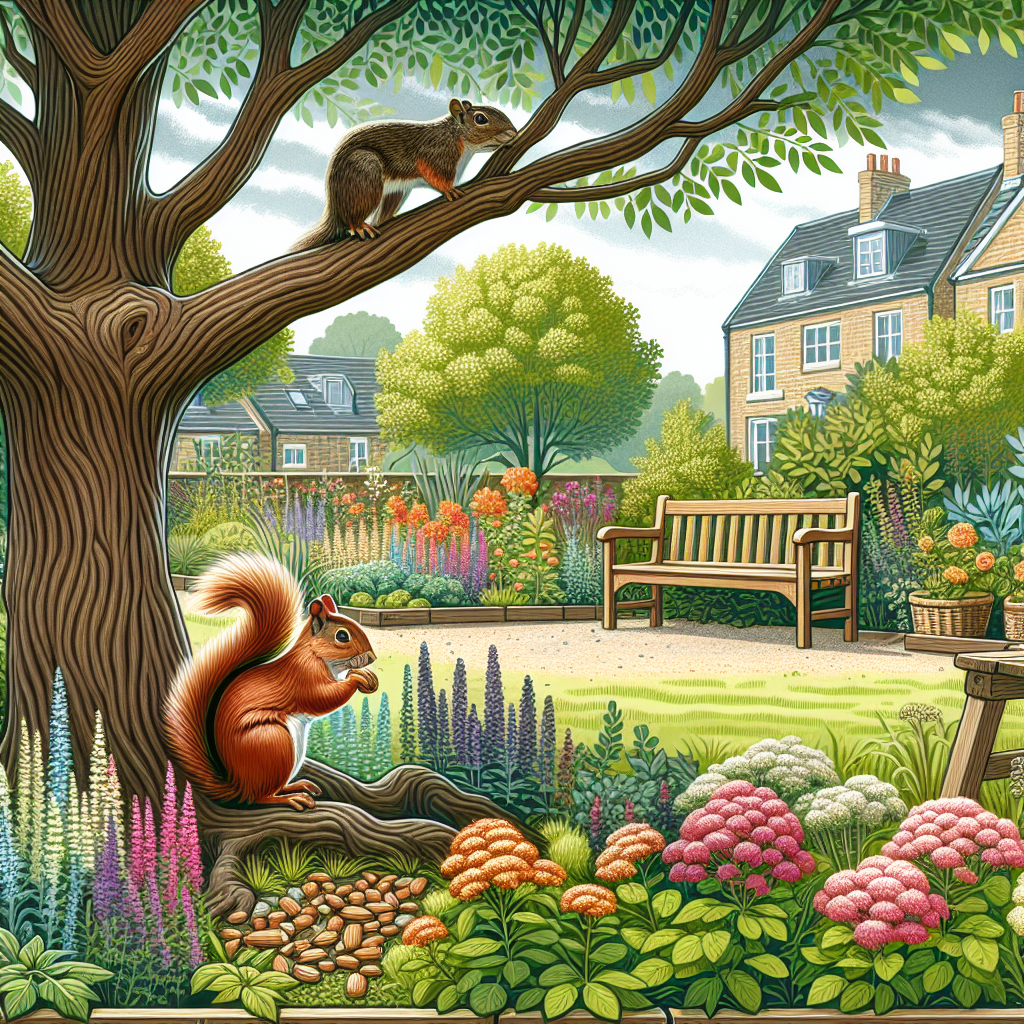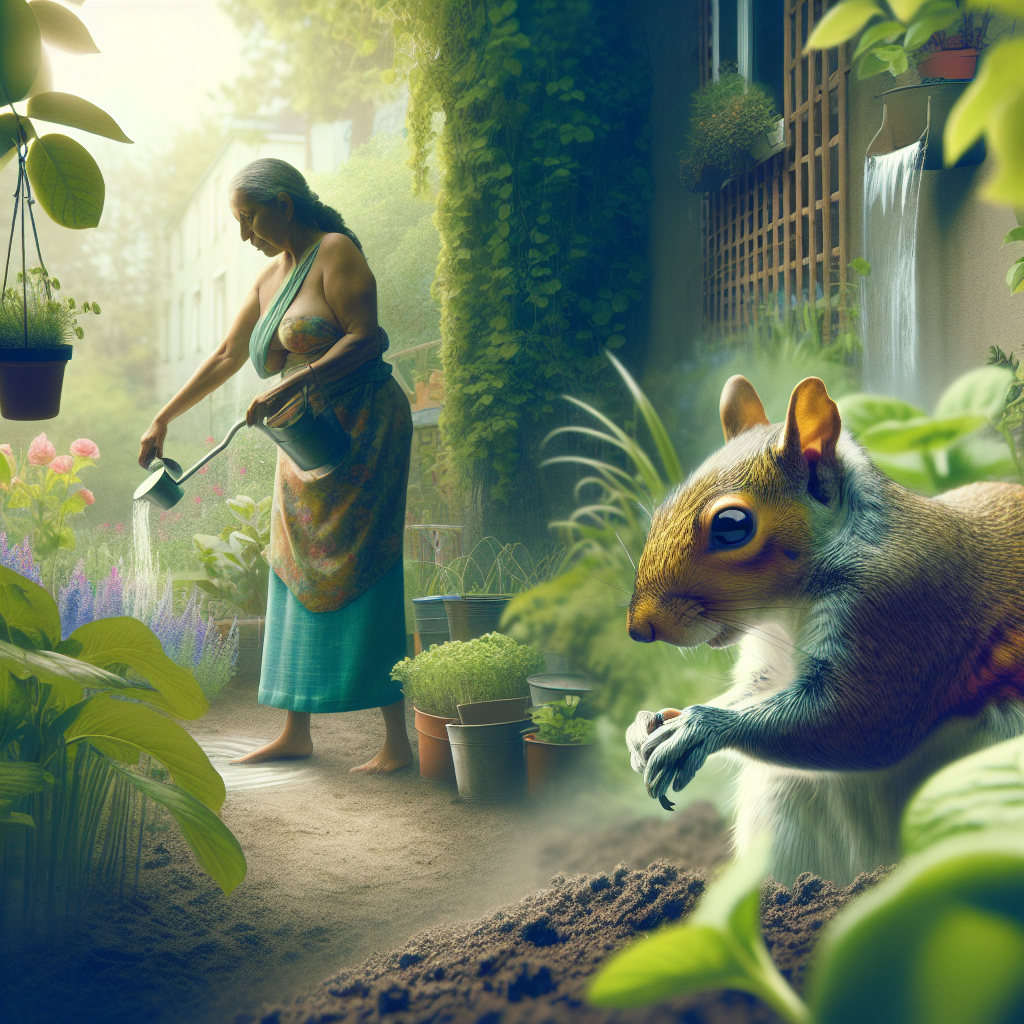
Are squirrels wreaking havoc in your garden? If you find yourself constantly battling with these furry invaders, don’t worry, you’re not alone. Many urban dwellers face the challenge of managing wildlife in their gardens, particularly squirrels. These nimble creatures can be a nuisance, but fear not! In this article, we’ll share some helpful strategies that will assist you in peacefully coexisting with these critters, allowing you to enjoy your garden to its fullest potential. So, grab your gardening gloves and let’s tackle the issue together!
Identifying the Problem
Signs of squirrel presence
When dealing with urban wildlife, it’s essential to first identify the problem. In the case of squirrels in your garden, there are several signs to look out for. One of the most obvious signs is seeing squirrels themselves, whether it’s scampering across your lawn or climbing up a tree. Additionally, you may notice chewed fruits, vegetables, or flowers, especially when they’re partially eaten or have noticeable bite marks. Squirrels are notorious for raiding bird feeders, so if you find birdseed scattered around, it’s a clear indication of their presence. Lastly, keep an eye out for small holes or burrows in the ground, as squirrels often use them for nesting and hiding food.
Damage caused by squirrels
Squirrels can cause considerable damage to your garden if left unchecked. Their constant foraging can result in the loss of fruits and vegetables, leaving you with little to harvest. They may also dig up newly planted seeds or bulbs, disrupting your gardening efforts. Additionally, squirrels are known to damage trees by stripping off bark, which can weaken the tree and leave it susceptible to disease and infestation. Their nibbling habits can also leave flowers and plants disfigured or completely destroyed. Therefore, it’s crucial to understand squirrel behavior and implement effective strategies to prevent and manage these damages.
Understanding Squirrel Behavior
Squirrel species in urban areas
To effectively deal with squirrels in your garden, it’s vital to know the common species found in urban areas. Two well-known species are the Eastern Gray Squirrel and the Fox Squirrel. The Eastern Gray Squirrel has a gray or silver coat with a white belly, while the Fox Squirrel has a reddish-brown or grayish-brown coat with a distinctive fluffy tail. Being aware of the species you’re dealing with can help you tailor your squirrel management strategies accordingly.
Habitat preferences of squirrels
Squirrels are highly adaptable creatures, which is why they thrive in urban environments. They inhabit parks, gardens, wooded areas, and even commercial spaces. Squirrels tend to favor areas with trees for nesting and abundant food sources. Ensuring your garden does not provide an ideal habitat for squirrels can help reduce their presence and minimize damage to your plants.
Foraging and nesting patterns
Squirrels are active foragers, constantly in search of food. They have a diet that includes seeds, nuts, fruits, and vegetables. Their preferred food sources vary depending on the season. During spring and summer, they focus on fruits, vegetables, and tender shoots, while in fall and winter, their attention shifts to nuts and acorns. Understanding their foraging patterns can help you implement effective strategies to protect your garden.
Squirrels also have elaborate nesting behaviors. They build nests called dreys, usually high up in trees, using twigs, leaves, and grass. Female squirrels create multiple nests to provide alternate shelter options for their young. By knowing their nesting habits, you can identify potential spots where squirrels may seek refuge in your garden.
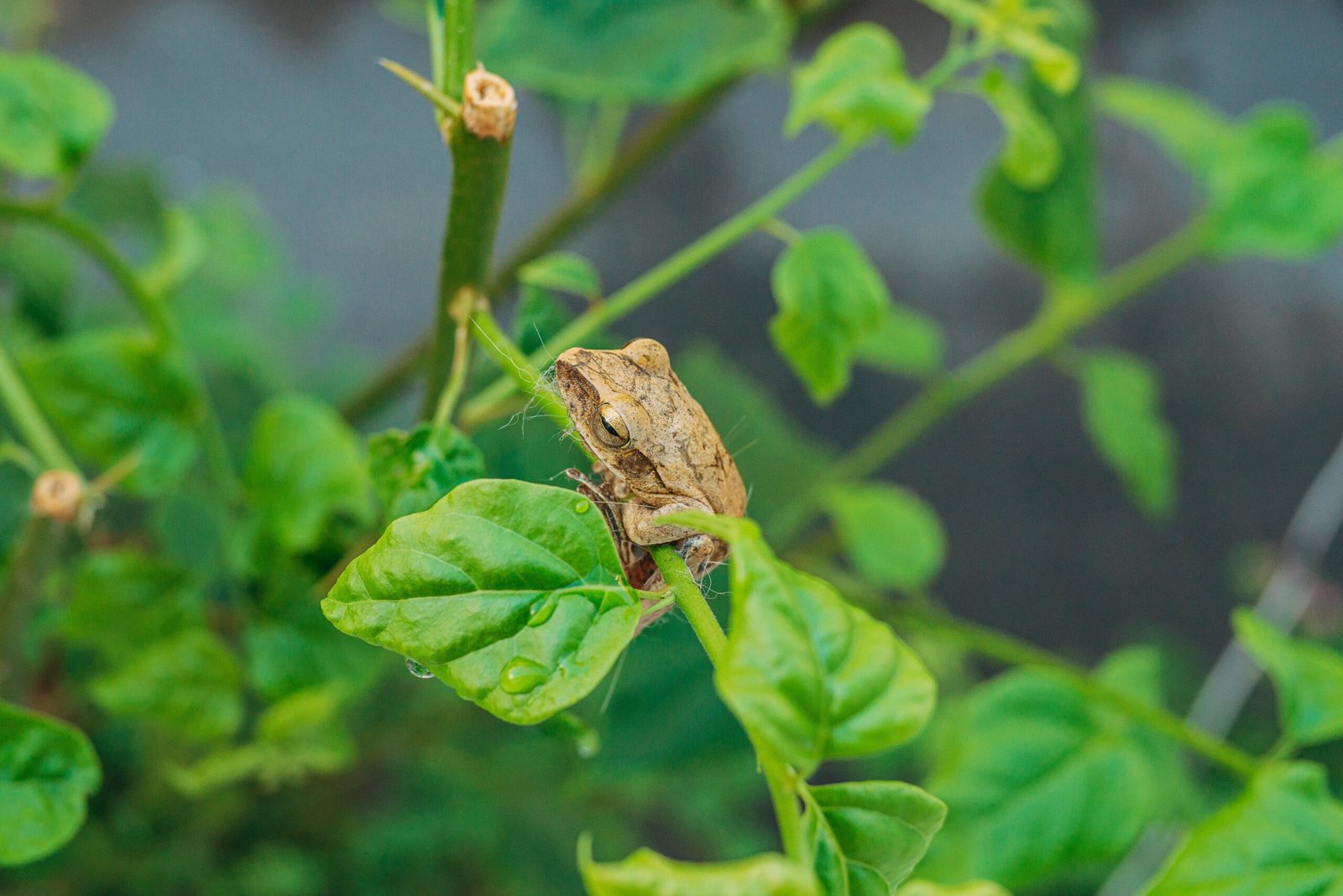
Preventing Squirrel Access to Your Garden
Securing fences and barriers
Installing secure fencing around your garden is an effective way to prevent squirrels from gaining access to your plants. Opt for fencing with small mesh size, such as hardware cloth or chicken wire, to prevent squirrels from squeezing through. Ensure that the fence is at least three feet high, as squirrels are excellent climbers. Adding an outward-facing overhang at the top can further deter them from scaling the fence.
Use of bird feeders
Bird feeders often attract not only birds but also squirrels. To deter squirrels from raiding your bird feeders, choose feeders designed specifically to exclude them. Some feeders have mechanisms that close off access when a squirrel’s weight is detected. Placing the feeder away from tree branches and structures that squirrels can jump from can also make it less accessible to them.
Protecting trees and plants
Protecting your trees and plants from squirrel damage can be achieved through various methods. Wrapping trunks with metal or plastic guards can prevent squirrels from climbing up the tree and damaging the bark. Adding physical barriers such as wire mesh around the base of vulnerable plants can also discourage squirrels from reaching them. Additionally, incorporating squirrel-resistant plant varieties into your garden can help minimize the impact of their foraging habits.
Sealing entry points to buildings
Squirrels are skilled at finding entry points into buildings, leading to potential damage and nuisance. To prevent them from gaining access to your home, inspect and seal any openings they could exploit. Look for small gaps or holes in your roof, walls, or eaves and use materials like caulk or wire mesh to seal them off. By denying squirrels entry to your property, you can minimize their presence in your garden.
Natural Repellents and Deterrents
Scent-based deterrents
Using scent-based repellents can be an effective way to deter squirrels from your garden. Squirrels have a strong sense of smell and are sensitive to certain odors. Spraying natural deterrents such as predator urine or hot pepper spray around your garden can create an undesirable environment for squirrels. Additionally, planting aromatic herbs like mint, lavender, or rosemary can help mask the scents of preferred plants, making them less appealing to squirrels.
Audio-visual deterrents
Audio-visual deterrents utilize sound and movement to scare off squirrels. Placing wind chimes, aluminum foil, or old CDs near vulnerable plants can create noise that squirrels find unsettling. Motion-activated sprinklers or rotating scarecrows can also startle squirrels when they approach, effectively deterring them from your garden.
Ultrasonic devices
Ultrasonic devices emit high-frequency sounds that are unpleasant to squirrels but undetectable to humans. These devices can be strategically placed around your garden to create an environment that squirrels find uncomfortable. Be sure to follow the manufacturer’s instructions for optimal placement and usage.
Predator decoys
Using predator decoys is another method to deter squirrels from your garden. Placing realistic replicas of predators such as owls or hawks in visible locations can create the impression of potential danger. Squirrels, being naturally cautious, may avoid areas with perceived threats, reducing their presence around your plants.
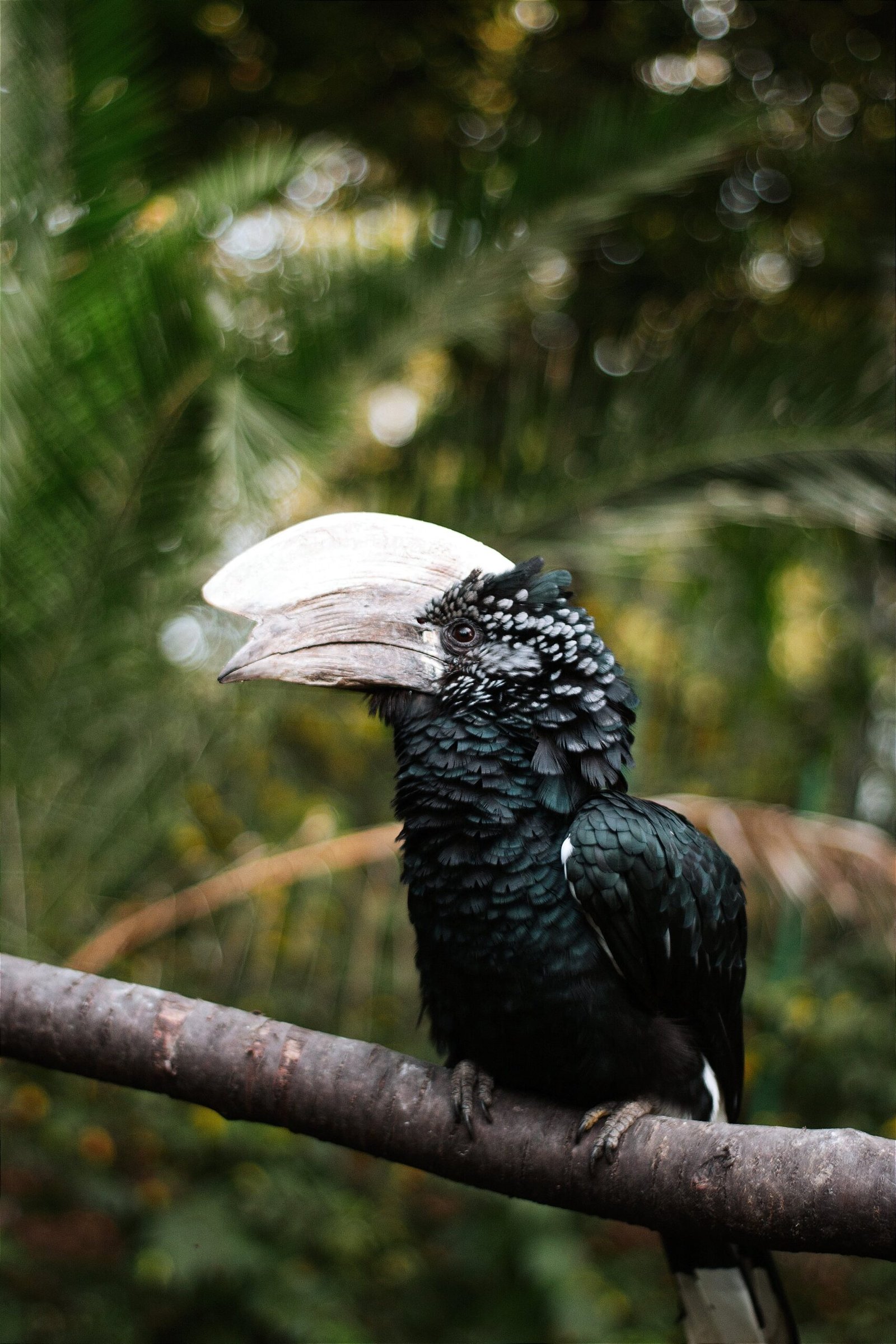
Creating a Distraction
Providing alternative food sources
One effective way to manage squirrels in your garden is by providing alternative food sources that are more enticing than your plants. By offering a separate feeding station stocked with squirrel-friendly food such as corn, sunflower seeds, or peanuts, you can divert their attention away from your garden. Regularly replenishing the food supply ensures that squirrels find the feeding station a reliable and preferred food source.
Building squirrel-specific feeding stations
To further complement the distraction technique, consider building squirrel-specific feeding stations. These feeding stations can be constructed using a sturdy pole or post and attaching squirrel feeders to it. Place the feeding station away from your garden to lure squirrels to a designated area where they can freely enjoy their food without causing damage to your plants.
Trapping and Relocating Squirrels
Humane trapping methods
In certain situations where other strategies prove ineffective, humane trapping may be necessary. Humane traps, designed to capture squirrels without causing harm, can be baited with foods like nuts or seeds. It’s important to regularly check the traps to avoid undue stress or harm to the captured squirrels. Once trapped, squirrels can be safely transported and released in a suitable natural habitat away from residential areas.
Legal considerations
Before engaging in trapping and relocating squirrels, it’s crucial to understand the legal considerations in your area. Certain regions have specific regulations regarding trapping and relocating wildlife. It’s important to familiarize yourself with the laws, as failure to comply can result in legal consequences. Contacting local wildlife authorities or a wildlife control professional can provide guidance on legal requirements and procedures.
Relocation protocols and limitations
When considering squirrel relocation, it’s essential to follow recommended protocols to ensure their well-being. Choose release sites that resemble their original habitat and provide necessary food and water sources. It’s important to release squirrels as close to their natural habitat as possible to facilitate their adaptation and survival. Keep in mind that some areas may have restrictions or limitations on the relocation of squirrels, so it’s crucial to adhere to these guidelines.
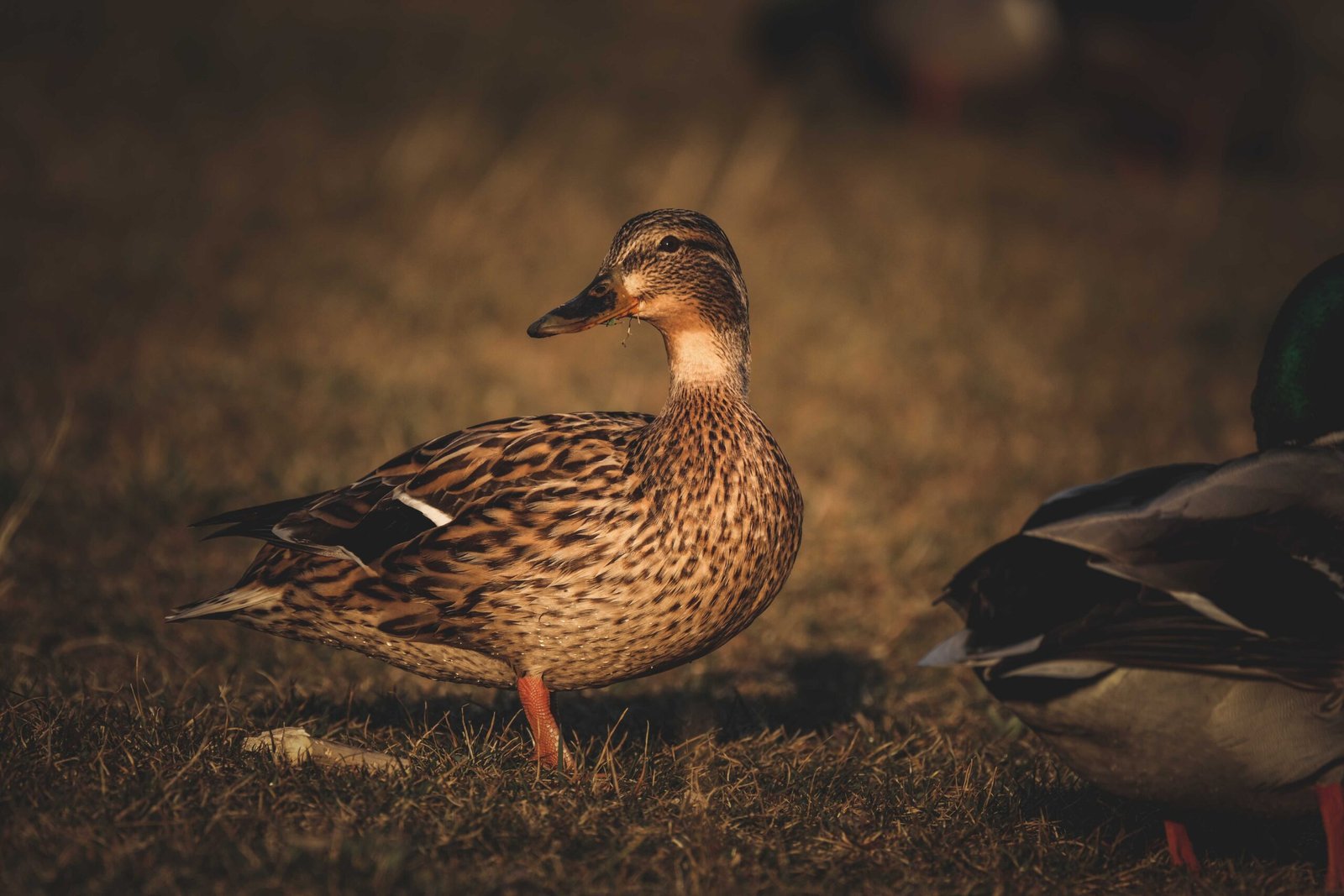
Understanding Legal Restrictions
Local laws and regulations
When dealing with urban wildlife, it’s vital to understand the local laws and regulations related to managing squirrels. Different regions may have specific rules regarding trapping, relocating, and even feeding wildlife. Some areas may require permits or licenses for certain wildlife management actions. Researching and familiarizing yourself with these laws ensures that you stay in compliance and avoid any legal issues.
Permits for wildlife management
In certain situations, wildlife management activities may require permits. These permits are typically issued by local wildlife agencies or conservation organizations to authorize actions such as trapping and relocating squirrels. Applying for and obtaining the necessary permits ensures that you are legally allowed to carry out specific wildlife management strategies in your area. Working with wildlife professionals can help streamline the process of obtaining permits and ensuring compliance with local regulations.
Working with Wildlife Professionals
When to seek professional help
While many strategies can be implemented by homeowners, there may be instances where seeking professional help is necessary. If the squirrel population in your garden seems overwhelming or if your efforts haven’t produced the desired results, consulting with a wildlife control expert can provide valuable assistance. Experts have the knowledge, experience, and resources to effectively manage squirrel-related issues and ensure a safe and humane resolution.
Choosing a qualified wildlife control expert
When selecting a wildlife control expert to address squirrel issues in your garden, it’s important to choose a qualified professional. Look for individuals or companies with relevant experience and proper certifications. A reputable wildlife control expert will prioritize humane methods and work in compliance with local laws and regulations. Seek recommendations from trusted sources and inquire about their approach to squirrel management before making a decision.
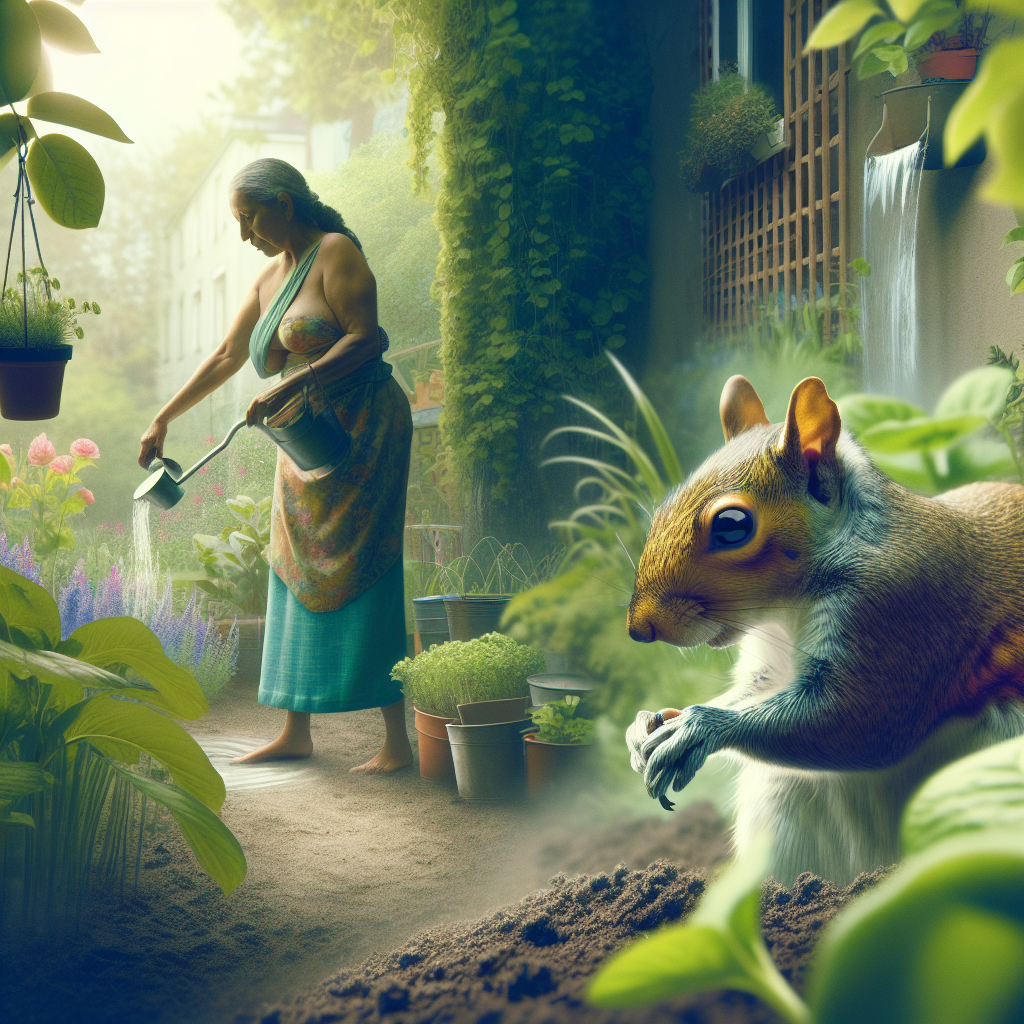
Educating the Community
Sharing knowledge and strategies
Managing urban wildlife, including squirrels, is a collective responsibility. The more the community is informed, the better equipped they are to deal with wildlife-related issues. Share your knowledge and strategies with neighbors, friends, or local gardening groups. Provide insights on effective deterrents, ethical approaches, and the importance of coexistence. Educating others fosters a sense of shared responsibility, promoting a harmonious relationship between humans and wildlife in urban settings.
Creating awareness about coexistence
Emphasizing the concept of coexistence is crucial in managing urban wildlife. Promote the idea that squirrels are an integral part of the ecosystem and play a valuable role in seed dispersal. Encourage gardeners and homeowners to adopt practices that strike a balance between human needs and wildlife conservation. Raising awareness about the benefits and challenges of coexisting with squirrels helps foster empathy and understanding among community members.
Considering Ethical Approaches
Finding a balance between human needs and wildlife conservation
Managing urban wildlife requires finding a balance between human needs and wildlife conservation. While it’s natural to want to protect your garden and property, it’s important to consider the impact of your actions on the overall ecosystem. Strive to implement ethical approaches that prioritize the well-being and conservation of squirrels, while also safeguarding your garden. By embracing sustainable, humane, and responsible practices, you can establish a harmonious relationship with the wildlife in your urban community.
Promoting humane and ethical wildlife management
Promoting humane and ethical approaches to wildlife management is essential in achieving successful outcomes. Avoid using harmful or cruel methods that cause unnecessary suffering to squirrels or any other wildlife. Instead, focus on prevention, deterrence, and coexistence. By championing and advocating for humane and ethical wildlife management, you contribute to a more compassionate and sustainable environment for both humans and squirrels alike.
Dealing with squirrels in your garden can be challenging, but by understanding their behavior, implementing preventative measures, and considering ethical approaches, you can effectively manage their presence. With a combination of strategies, education, and cooperation, you can create a garden that thrives while peacefully coexisting with urban wildlife. So, embrace the beauty of nature, take pride in your gardening efforts, and enjoy the vibrant life squirrels bring to your urban oasis.
